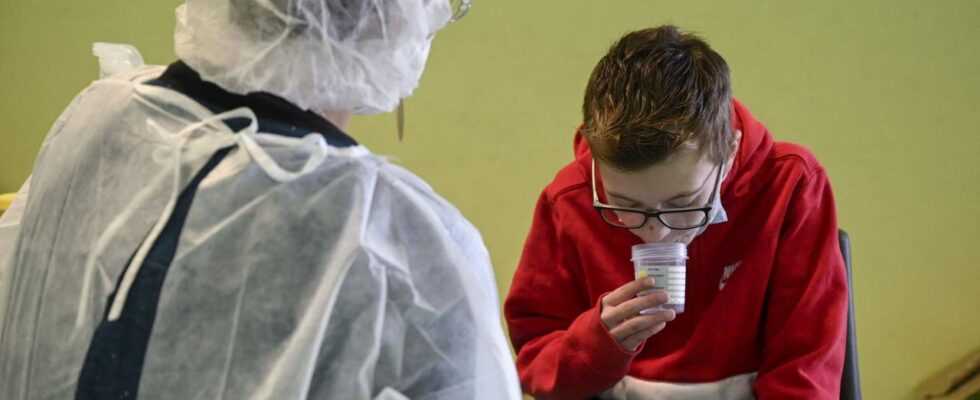HINT – According to a preliminary study published in December in a medical journal, saliva tests would be more reliable than nasopharyngeal tests in the face of the new variant.
FR –
While France is breaking screening records, with 11.96 million antigen PCR tests carried out between January 3 and 9, in the face of the flash spread of the Omicron variant, voices are being raised within the scientific community to to question the validity of these nasopharyngeal samples in the face of this ultra-contagious variant. In a preliminary study – the results of which have yet to be validated by their peers – scientists suggest that saliva tests would allow better detection of Omicron and limit false negatives.
The authors of this study published in the medical journal MedRxiv, relayed by the New York Times, explain that the reliability of the type of sample varies according to the variant concerned. Thus, faced with the Delta variant, the nasopharyngeal test would be 100% reliable, against 71% for a saliva test. For the Omicron variant, it is the opposite: the saliva test would be 100% reliable, against 86% for a nasal test.
All the info on
Variant Omicron: the planet on high alert
According to the scientists, these partial results tend to show that the Omicron variant is concentrated more in the throat and bronchi than the Delta, which increases the reliability of saliva tests, unlike nasal samples.
According to preliminary data from the American health authorities, communicated at the end of December, the antigenic tests would be less sensitive to the Omicron variant than to the previous variants, including Delta. They would therefore be more likely to show negative results, despite an infection. “Preliminary data suggest that antigen tests detect the Omicron variant well, but with reduced sensitivity”, had thus declared in a press release the American Medicines Agency (FDA).
A track under study in France
However, the American health authorities continue to recommend their use, like many scientists, for their ease of use. “If a person tests negative with an antigen test, but suspected of having Covid-19, for example having symptoms or a high likelihood of infection due to exposure, follow-up with a molecular test (or PCR, editor’s note) is important”, underlined the agency.
Read also
- Unlike Delta, the risk of hospitalizations would be halved with the Omicron variant
- More PCR to confirm a positive antigen: towards less effective screening?
In France, the Haute Autorité de Sante (HAS) has extended the use of saliva tests, available since February 2021. According to the JDD, which quotes the Ministry of Health, the question of a better reliability of saliva tests in the face of Omicron is under study. “We know that Omicron replicates a lot in the mouth and throat, we are investigating this file, generating data to compare the effectiveness of the two methods”, explains the ministry.
On the same subject
The most read articles
Vaccination pass: the flower made to the non-vaccinated
Covid-19: 525,527 positive cases in 24 hours, new contamination record in France
EXCLUSIVE – Presidential 2022: discover the results of our daily survey of January 20
LIVE – Covid-19: nearly 19,000 classes closed in France, a record since the start of the pandemic
Covid-19: the new increase in contaminations in France caused by BA.2, a sub-variant of Omicron?

